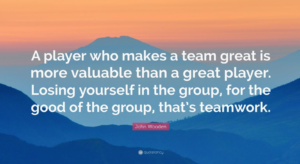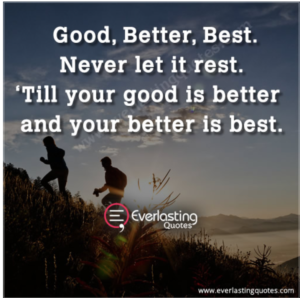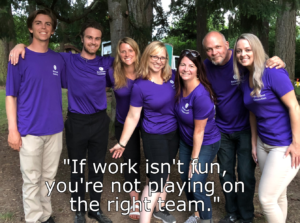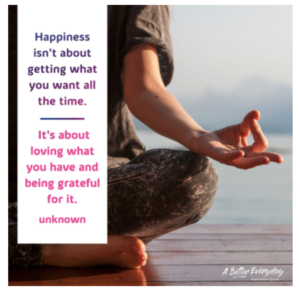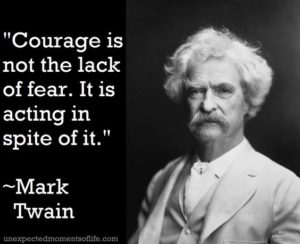My Fountain of Youth: Interrupted
I spent the week of Christmas of 2018 doubled over in pain, with horrible stomach cramps and diarrhea. The mold I had inadvertently ingested along with my tomatoes was wreaking havoc on my digestive system. This was not how I wanted to spend the holiday! Then when I did recover, the problems would resurface whenever I ate tomatoes. Had a developed an allergy or intolerance to tomatoes?
After that bout of mold toxicity, my body seemed to continue to decline from there. It began with the reoccurring illnesses. I used to claim to only rarely get sick. But now it seemed like every week, I was fighting yet another infection! Why I wondered, was I all of a sudden so vulnerable to getting sick?
Aging Fast
Around that time, I also was experiencing quite a bit of knee pain. The problem was more pronounced on the right than the left. And while I was able to correct the problem, it wouldn’t take much for me to get me injured again! Just in my normal activities of daily living, I would feel a sudden pain in one of my knees!
I was also experiencing more pain in my arches of my feet. My ankles and achilles were achy and felt vulnerable to injury. I bought special arch supports, and wore an arch and ankle brace whatever I exercised.
I also noticed I have random aches and pains throughout my body. Sometimes it would be in my organs, and other times it would be in muscles joints, or tendons. I worked on each problem as it occurred. But as a person who was previously strong and healthy, I started to feel like I was falling apart. I was playing Wackamole with my health. It seem like there was constantly something new that I had to address. And for the first time in my life, I felt like I was aging rapidly! I was used to skiing in the winter and hiking in the summer, and I had stopped doing those things because my body felt too vulnerable. What the heck was going on?
For awhile I thought I had developed arthritis. I was experiencing pain in my toes as well. But it didn’t explain why all of my peripheral pain was showing up below my knees.
My Big Aha
Then one day I decided to see if another autoimmune disease could explain more of my symptoms. I searched for list online and ask my guides if I had an autoimmune disease this list that explained my symptoms. I was directed to mixed connective tissue disease. When I read the description of what it was I was floored by how much it resembled my experiences!
According to the Merck manual, mixed connective tissue disease includes “systemic lupus erythematosus, systemic sclerosis, and polymyositis. Raynaud phenomenon, joint pains, various skin abnormalities, muscle weakness, and problems with internal organs can develop.” Scerlosis is the hardening of body tissue, and polymyositis is inflammation of the muscles and associated tissues.
I have had Raynaud’s syndrome (a whitening of my finger tips with cold) for over 2 decades.
Suddenly, everything started to make sense because of what I knew about the causes of autoimmune disease. For most people, a diagnosis of mix connective tissue disease is often dramatic and devastating. I certainly was angry! I felt like I had already experienced enough trauma in my life! What the heck had I done to deserve such a horrible disease?
But in a moment of despair, I felt the sudden knowing that I would be able to overcome this. I knew that if I identified the underlying causes and released them, that I would be able to heal. This was just one more challenge that I was being given, so that I could be of greater service to clients with similar challenges.
How This Relates to You
So why is my story relevant to you? One out of 9 women and one out 12 men has a diagnosed autoimmune disease. But because there are 3 stages of autoimmunity, and we aren’t typically diagnosed until the most advanced stage, many more people are on the path to developing autoimmune disease. The rate of autoimmune disease has been growing steadily in the last two decades at an alarming rate. Many of us in the functional medicine community are deeply concerned about the trajectory we are on.
My passion and life purpose is to identify and release underlying causes that get in our way of healing. Because our bodies are already sophisticated healers, releasing the underlying causes is usually sufficient to reverse the symptoms, and it can even reverse the progression of the disease!
So what are the underlying causes of autoimmune diseases? There are many and there is still much research to be done. I’ve grouped them into 4 categories.
1) Intestinal permeability
This hypothesis poses that there are at least two stages to developing autoimmune disease. The first stage involves the opening up of the endogenous barriers we have that protect our vital organs. The two most commonly known ones are in the gut and the brain. If we have a leaky gut or brain barrier, it allows pathogens and toxins in, and nutrients to leak out. Thus we become more vulnerable to environmental triggers.
So what causes those barriers to open?
This is still a budding area of research, but there is evidence for, human endogenous retroviruses, NSAIDs and overgrowth of harmful organisms like fungus (mold) or parasites to cause leaky gut. For gluten sensitive people, gluten could be the trigger. Your diet, stress levels and a pro-inflammatory life-style (bad habits, or environmental exposures) exacerbate any existing vulnerabilities.
Once the barriers are open, the levels of inflammation in the body can get out of control. The cells that are charged with getting rid of foreign invaders (the macroglia and microglia), get overwhelmed. In their desperate attempts to fight off, the bad guys, they start confusing our own tissue for foreigners. This is one way the attack on our own tissues begins.
2) Auto-mimicry
Auto-mimicry is the idea that proteins that enter our bodies look enough like our own tissue that our bodies can’t tell the difference between self and non-self. For example, with the autoimmune disease myasthenia gravis, the body has anti-bodies to the acetylcholine receptor, which flag these proteins for destruction. The sequence of the acetylcholine receptor shares a similar sequence in the herpes simplex virus (HSV). So the body attacks the acetylcholine receptor thinking that it is targeting the virus.
Similarly the protein gluten looks like casein (found in dairy) and the thyroid. So the body can get confused between the 3 proteins.
So why doesn’t auto-mimicry happen for everyone? It is likely due to the balance of risk and protective factors each person has. For example someone who has a healthy lifestyle and is mentally healthy has an immune system that isn’t as overwhelmed. An immune system that has what it needs to do it’s job should be more effective at teasing apart what is native vs. foreign.
While auto-mimicry makes a lot of intuitive sense, and there is some evidence for it’s existence, scientists have not yet been able to find widespread proof that this is major underlying cause.
3) Genetic susceptibility
It is known that if you have a relative with an autoimmune disease that the your risk of an autoimmune disease (not necessarily the same one) is higher than someone who doesn’t. The ADAR1 gene was recently discovered to be involved in autoimmunity. Normally our RNA is single stranded, and viruses have double stranded RNA. Our immune systems recognize viruses by its double stranded RNA. But we also have short sequences of double stranded RNA, and ADAR1 unzips them so that our immune system will only attack viruses. But if we have too many viruses, than ADAR1 gets confused and starts to unzip viral double stranded RNA instead of our own. So the virus proliferates and our own tissue becomes ripe for attack.
4) Relationship to self
I, and other health practitioners such as Gabor Mate, Carolyn Myss and Dr. Keesha Ewers believe that at the root of autoimmune disease is our relationship to ourselves. I’ve had incredible success with my autoimmune disease clients (and myself) when I’ve addressed the metaphysical underpinnings to why our bodies are attacking themselves. My cat no longer has symptoms of arthritis, and I’ve taken her off of her supplements.
For 2.5 years prior to the beginning of these health issues, I had attracted a series of abusive housemates and landlords. My body wanted to know “When will the attacks ever stop?”. I had to release the trauma that led it to believe that I would be under constant attack. My body was also responding to my belief about not getting enough support, and I had to help my body release the trauma it was holding with that issue as well.
Addressing these root causes allowed my body to stop attacking itself. I now feel as healthy as I did before all this started. Furthermore, the cycle of abuse has stopped and I now have a fantastic landlord. Plus I feel well supported! I have no doubt that addressing the metaphysical underpinnings was the most important step to reversing my cat’s arthritis and my mixed connective tissue disease!
What About You?
Are you struggling with an autoimmune disease? If you are still showing symptoms, then why not give me a call to see what is possible when we identify and release underlying causes? Learn more about the Body Code here and contact me here to schedule a complimentary consultation.
Article Provided by:
LifeLong Enerjoy
Tina Huang
Dr.Tina.Huang@lifelongenerjoy.com
1855 ENERJOY
lifelongenerjoy.com

